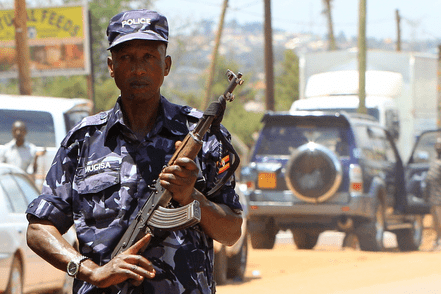
Ugandan police killed five terror suspects following twin attacks
The Ugandan police have shot dead five suspects and arrested 21 people, officials said, following twin suicide bombings claimed by an ISIL (ISIS) affiliate that killed three people.
Counterterrorism officers in the west of the country killed “four suspected terrorists in Ntoroko who were crossing back to DRC”, police spokesman Fred Enanga told a news conference on Thursday.
A fifth man, Sheikh Abas Muhamed Kirevu, was killed near the capital as he tried to escape arrest, Enanga said, adding that Kirevu was a local Islamic leader who was “responsible for reawakening the terror cells in Kampala”.
Police also arrested 21 suspects as part of a crackdown on the Allied Democratic Forces (ADF), an armed group active in the eastern Democratic Republic of the Congo that the United States has linked to ISIL.
The ADF, historically a Ugandan rebel group, has been accused of killing thousands of civilians in the eastern DRC.
Tuesday’s explosions in the capital Kampala occurred within minutes of each other, with two suicide bombers on motorbikes disguised as “boda boda” motorcycle taxi drivers detonating a device near parliament, while a third attacker targeted a checkpoint near the central police station.
The twin attacks, which killed at least three people and injured 33 others, were the latest in a string of attacks in the East African country.
ADF claimed responsibility for a bomb packed with nails and shrapnel that exploded near a popular street-side restaurant strip in Kawempe division in Kampala last month.
The group has long been opposed to the rule of longtime President Yoweri Museveni, a US security ally who was the first African leader to deploy peacekeepers in Somalia to protect the federal government from the al-Shabab armed group.
Police arrested a number of suspected ADF operatives following the incident and warned that others were believed to be plotting a new attack on “major installations”.
Washington in March linked the ADF to the ISIL, which in 2019 began to claim some ADF attacks on social media, presenting the group as its regional branch – the Islamic State Central Africa Province, or ISCAP.
Source: Al Jazeera





